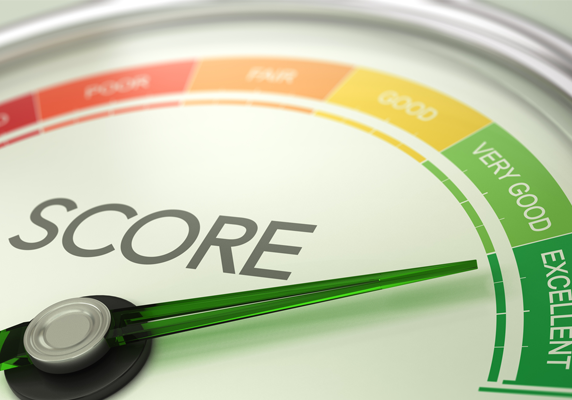
 Why is keeping a good credit score important? Most people know that a higher credit score can get better interest rates on financing, but the risks of a low credit score go beyond that.
Why is keeping a good credit score important? Most people know that a higher credit score can get better interest rates on financing, but the risks of a low credit score go beyond that.
A credit score indicates your ability to repay debts. It’s what most traditional lenders use to determine whether you’re eligible for a loan or not.
Your credit score can range from 300 to 850. “Good” credit scores fall in the 670 to 850 range, while “fair” credit scores are in the 580 to 669 range, and “poor” credit scores are in the 300 to 579 range.
If you fall in the fair or poor range, you could face serious consequences — and here’s why.
- You won’t be able to get the best rates for loans — if a lender will even lend to you.
Some lenders won’t even offer credit to people with bruised or bad credit scores because they can’t guarantee that you will repay them.
Most of the lenders who will lend to you will give higher interest rates, so you’ll be paying more for your loans than someone with a higher credit score.
Your options are also limited, so it’s easier to be vulnerable to payday lenders and “no-strings” lenders who charge a premium. These types of loans may seem innocent, but they are incredibly easy to fall into a vicious cycle of debt.
- Your credit score affects more than your borrowing ability.
Some landlords check your credit score if you’re considering renting an apartment.
Some employers check your credit score if you’re applying for a job – particularly if it’s a cash handling role.
Cell phone companies may check your credit score to know how reliable your payments will be.
Insurance companies check credit scores to determine premiums.
You might have to pay security deposits on utilities based on your credit score.
If you want to start your own business, you might not be able to get a loan.
The list goes on…
Regardless of the reason for it, a bad credit score has a way of following you. Even if it’s not causing problems right now, it might in the future.
- A bad credit score indicates broader financial issues.
Beyond the consequences outlined above, a bad credit score can be a sign that something is off with your finances. It’s rare for someone in good financial health to have a poor credit score.
It might indicate that you are carrying too much debt, your credit card balance is too high, you’re defaulting on payments, and so on… In general, a bad credit score does not just happen. It is typically caused by a compounding of bad habits and problem debt over a longer amount of time.
As the saying goes, where there’s smoke, there’s fire. If your credit score is in the middle range, take it as a warning sign that something needs to change.
If it’s gone past that, it’s time to remedy the situation because a poor score could affect your financial future – including your ability to save for emergencies, for retirement, paying for your children’s education, and so on.
It might not feel like these habits matter in the present day, but if you take the long-term view, they will catch up with you.
Having a bruised or bad credit score is no joke – but the punchline is that there are solutions available.
The absolute best thing you can do for your credit score is to start taking action today. Don’t delay or wait. Honestly assess how you are handling your finances, where you have room for improvement, and identify ways to deal with the issues you are facing.
If you have problem debt, this might mean consolidating it and then rebuilding good credit.
Prudent Financial Services has supported many people in improving their credit scores through loans for debt consolidation. We lend to people with good credit, bad credit, and everywhere in between.
Contact us today to see if you qualify or to learn more about rebuilding credit. Call 1-888-852-7647 or visit www.prudentfinancial.net.
